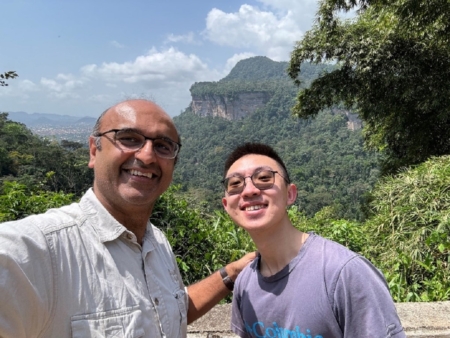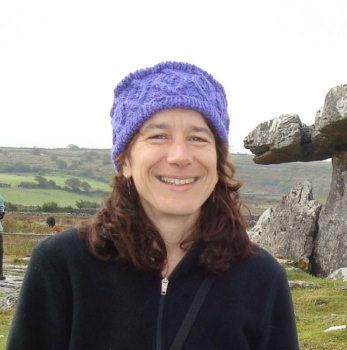Social ecological mapping for nature recoveryCase study
Developing social ecological maps for land use planning, investment and inclusive decision-making.
This work will be conducted in both the UK and Ghanaian case study landscapes. It will include literature review, the development of conceptual frameworks for the integration of the social dimensions of land use into ecological maps, and the piloting of new forms of inclusive social ecological mapping.
The core purpose of the project is to ‘get social issues on the map’ of nature recovery. Making social issues visible is critical to:
- better understand the drivers of land use and nature recovery, and
- enable the integration of social values and local participation into land use mapping, monitoring and priority-setting for land use policy and practice.
Background/rationale
The ecological mapping of nature recovery to meet ecological goals and targets is advancing at a rapid pace, enabled by advances in remote sensing and other monitoring technologies and incentivized by the promise of payments for ecosystem service and other financial mechanisms. A strong focus of this work has been on assessing changes in tree cover to address deforestation in the tropics and efforts at reforestation and afforestation in the Northern hemisphere. More recently, advances in sensor technologies and Artificial Intelligence (AI) have enabled more nuanced analysis of vegetative change, ‘ecosystem health’, biodiversity and other biophysical variables.
However this ecological data alone tells us little about the social dynamics that shape these land use patterns. Furthermore, the technologies and analyses used are often ‘expert-driven’ and inaccessible and/or inscrutable to the communities living within these mapped landscapes. This project will address these challenges by exploring the opportunities and risks of 1) integrating social and ecological data and 2) combining scientific and participatory approaches that recognize local and traditional knowledge.
Project outputs
- Society
- Scale and Technology
- Remote sensing
- Society
- Society
- Scale and Technology
- Remote sensing
- Society
Zhang-Zheng H; Adu-Bredu S; Duah-Gyamfi A; Moore S; Addo-Danso SD; Amissah L; Valentini R; Djagbletey G; Anim-Adjei K; Quansah J (2024). Contrasting carbon cycle along tropical forest aridity gradients in West Africa and Amazonia.. Nature communications.
Tropical forests cover large areas of equatorial Africa and play a substantial role in the global carbon cycle. However, there has been a lack of biometric measurements to understand the forests’ gross and net primary productivity (GPP, NPP) and their allocation. Here we present a detailed field assessment of the carbon budget of multiple forest sites in Africa, by monitoring 14 one-hectare plots along an aridity gradient in Ghana, West Africa. When compared with an equivalent aridity gradient in Amazonia, the studied West African forests generally had higher productivity and lower carbon use efficiency (CUE).
https://doi.org/10.1016/j.forpol.2023.103090 (2023). Contestations, counteractions and equitable conservation–a case study of Ghana’s Krokosua Hills Forest Reserve.. Forest Policy and Economics.
This paper delves into the intricate dynamics of forest conservation conflict in rural Ghana, where state-led conservation efforts through forest reserves have met fierce counteractions from local communities within and around the Krokosua Hills Forest Reserve. The study adopts a critical postcolonial institutional framework to examine the historical struggles that have shaped conservation policies in the country and subsequent contestations by forest-fringe communities (FFCs) seeking to use forest reserves for agricultural purposes. It dwells on archival materials, participant observation and interviews with farmers, local chiefs and forestry officials. The paper highlights the multifaceted strategies employed by these communities to assert their right to produce food within the forest reserve, leading to clashes with forestry authorities. By employing a critical postcolonial lens, the paper sheds light on the complex power relations and the historical legacies that underpin this conservation conflict, ultimately providing valuable insights for navigating sustainable and inclusive conservation approaches that respect the rights and local priorities of dispossessed, marginalised FFCs.
Huanyuan Zhang-Zheng, Stephen Adu-Bredu, Akwasi Duah-Gyamfi, Sam Moore, Shalom D. Addo-Danso, Lucy Amissah, Riccardo Valentini, Gloria Djagbletey, Kelvin Anim-Adjei, John Quansah, Bernice Sarpong, Kennedy Owusu-Afriyie, Agne Gvozdevaite, Minxue Tang, Maria C. Ruiz-Jaen, Forzia Ibrahim, Cécile A. J. Girardin, Sami Rifai, Cecilia A. L. Dahlsjö, Terhi Riutta, Xiongjie Deng, Yuheng Sun, Iain Colin Prentice, Imma Oliveras Menor & Yadvinder Malhi (2024). Contrasting carbon cycle along tropical forest aridity gradients in West Africa and Amazonia. Nature Communications.
Here we present a detailed field assessment of the carbon budget of multiple forest sites in Africa, by monitoring 14 one-hectare plots along an aridity gradient in Ghana, West Africa. When compared with an equivalent aridity gradient in Amazonia, the studied West African forests generally had higher productivity and lower carbon use efficiency (CUE). The West African aridity gradient consistently shows the highest NPP, CUE, GPP, and autotrophic respiration at a medium-aridity site, Bobiri. Notably, NPP and GPP of the site are the highest yet reported anywhere for intact forests. Widely used data products substantially underestimate productivity when compared to biometric measurements in Amazonia and Africa. Our analysis suggests that the high productivity of the African forests is linked to their large GPP allocation to canopy and semi-deciduous characteristics.
McDermott, Constance L., Jasper Montana, Aoife Bennett, Carolina Gueiros, Rachel Hamilton, Mark Hirons, Victoria A. Maguire-Rajpaul, Emilie Parry, and Laura Picot (2022). Transforming land use governance: Global targets without equity miss the mark. Environmental Policy and Governance.
Team
News & events
-

Oxford researchers find African forests even more productive than Amazonia.
6 June 2024Whilst most studies on the ecosystem functioning of tropical forests have focussed extensively on Latin America or Asia, researchers at the University of Oxford say comparing findings with studies in Ghana has produced interesting and differing results showing that more studies need to be made in Africa. Tropical forests cover large areas of equatorial Africa […]
news Blog -

World’s Most Productive Natural Forests Recently Discovered in West Africa
16 April 2024Whilst most studies on the ecosystem functioning of tropical forests have focussed extensively on Latin America or Asia, researchers in Oxford say comparing findings with studies in Ghana has produced interesting and differing results showing that more studies need to be made in Africa. Tropical forests cover large areas of equatorial Africa and play a […]
news Blog









